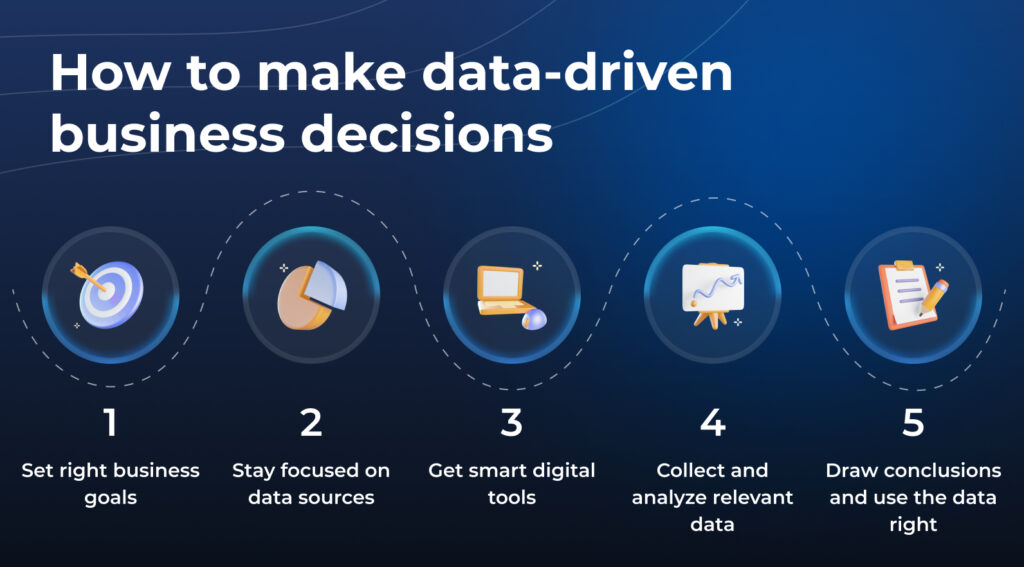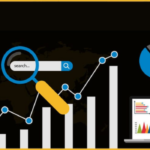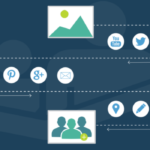Using Analytics to Improve Your Marketing
In the fast-paced world of digital marketing, making informed decisions can mean the difference between success and failure. Traditional marketing strategies often relied on intuition and best guesses. However, in today’s landscape, data-driven decision-making has become a cornerstone of effective marketing.
The Power of Data in Marketing
The abundance of data available to marketers is both a blessing and a challenge. From website traffic and social media engagement to customer behavior and email click-through rates, the sheer volume of data can be overwhelming. Yet, when harnessed correctly, this data can unlock invaluable insights.
Analytics: Your Key to Success
Analytics is the process of collecting, analyzing, and interpreting data to guide your marketing strategies. It’s not just about the numbers; it’s about understanding what those numbers mean and how they can influence your marketing decisions.
1. Identifying Key Performance Indicators (KPIs)
The first step in data-driven decision-making is determining the key performance indicators (KPIs) for your marketing campaigns. KPIs are specific metrics that align with your business goals. They could be related to website traffic, conversion rates, customer acquisition, or any other relevant aspect of your marketing efforts.
2. Tracking and Measuring
Once you’ve identified your KPIs, it’s crucial to set up the necessary tools to track and measure them. This might involve using web analytics tools like Google Analytics, social media insights, or CRM systems. These tools will help you collect the data needed for analysis.

3. Analyzing the Data
The real magic happens during the data analysis stage. Here are a few ways data analytics can improve your marketing:
- Audience Insights: By analyzing user data, you can better understand your target audience, including their demographics, interests, and behaviors. This information can guide your content and advertising strategies.
- Conversion Rate Optimization: Data can reveal where users drop off in your sales funnel. By identifying these weak points, you can make targeted improvements to increase conversion rates.
- Content Performance: Data-driven insights can show which pieces of content are resonating with your audience. This information can inform your content creation strategy and help you focus on what works.
- ROI Assessment: Through data analysis, you can assess the return on investment (ROI) for your marketing campaigns. This information is crucial for allocating resources effectively.
4. Iteration and Improvement
Data-driven decision-making doesn’t stop at analysis. It’s an iterative process. Once you’ve collected and analyzed the data, use the insights gained to make informed changes to your marketing strategies. This could involve tweaking your ad targeting, refining your content, or adjusting your email marketing approach.

Benefits of Data-Driven Decision Making
- Precision: Data-driven decisions are based on facts, not assumptions. This precision allows you to allocate resources more effectively.
- Adaptability: In a dynamic digital landscape, the ability to adapt quickly is essential. Data-driven decision-making provides the insights needed to pivot when necessary.
- Efficiency: By knowing what works and what doesn’t, you can avoid wasting time and resources on ineffective strategies.
- Improved Customer Experience: Data-driven marketing can lead to a more personalized and relevant customer experience, which can foster customer loyalty.
Conclusion
Data-driven decision-making is no longer a luxury but a necessity in the world of digital marketing. By harnessing the power of data and analytics, you can gain a competitive edge, make more informed decisions, and continually improve your marketing efforts. In an era where every click and interaction matters, data-driven marketing is your path to success. Start today, and watch your marketing strategies transform for the better.















